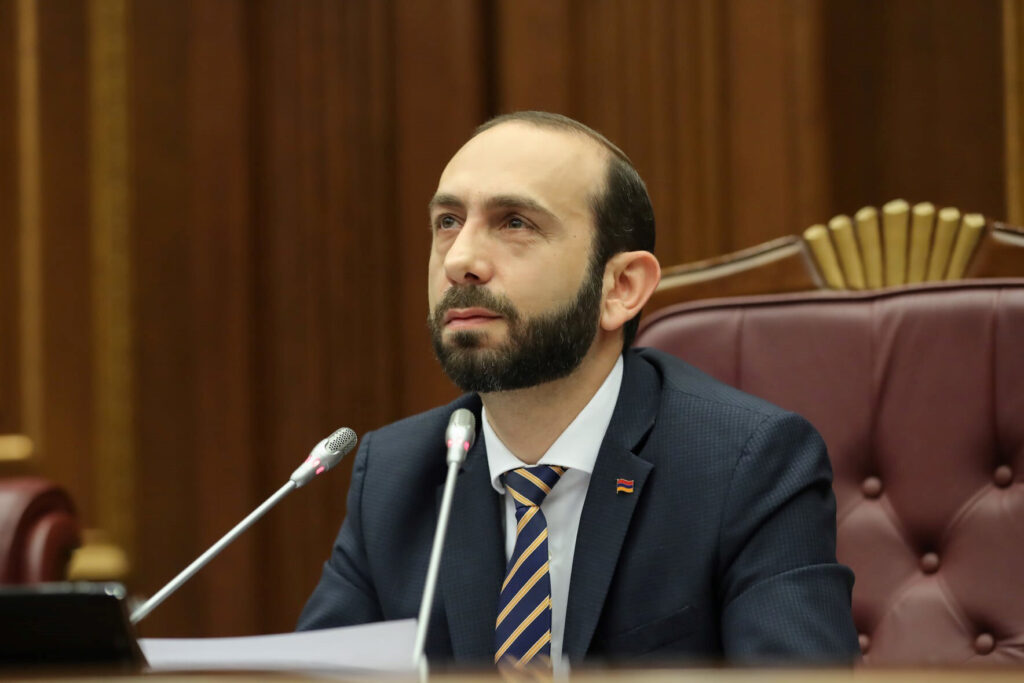With the appointment of Ararat Mirzoyan as Foreign Minister on Thursday, Armenian Prime Minister Nikol Pashinyan completed his cabinet, the members of which are prominent allies, with a few exceptions.
After leaving the post of the Foreign Minister empty for almost three months, the former Speaker of the Parliament Ararat Mirzoyan has been appointed to the post.
Mirzoyan, a close Pashinyan ally who initially served as the First Deputy Prime Minister after the 2018 revolution, has no diplomatic experience.
The appointment of Mirzoyan as Foreign Minister surprised many, as Pashinyan had previously appointed the former head of the National Security Council Armen Grigoryan as acting Foreign Minister. Grigoryan has since been dismissed from the post and reappointed as Secretary of the Security Council.
Until Mirzoyan’s appointment, the position of Foreign Minister remained vacant for several months. Ara Ayvazyan, who had previously held the position, resigned on 27 May, after Azerbaijani troops crossed several kilometers past the internationally recognised Armenian border in the province of Syunik.
In his farewell address, Ayvazian cryptically said that he was resigning because he would not make any decision that was ‘against the national interests’ of Armenia.
The other ministers appointed by Pashinyan after his landslide electoral victory in June are either former ministers or public officials, four of the twelve had occupied their positions before the election.
The only prominent member of the ruling Civil Contract Party that left the cabinet and did not run in the June 20 election was Deputy Prime Minister Tigran Avinyan. After the election, he announced that he was leaving politics for good and condemned the party for having failed to keep its promise to ‘keep business separate from politics’.
Two prominent Armenian business elites, Khachatur Sukiasian (commonly known by his nickname ‘Grzo’) and Gurgen Arsenyan were on Civil Contract’s electoral list, and have since become MPs. Avinyan has since been replaced by the former Minister of Territorial Administration Suren Papikyan.
[Read more: Oligarchs and ex-presidents — who's in and who's out in Armenia's electoral lists?]
Another controversial cabinet pick has been the new defence minister, Arshak Karapetyan. A former Pashinyan adviser, he has been scrutinised for a possible conflict of interest as a company owned by his wife had previously had a number of contracts with the Ministry of Defence.
Five-year plan
On 18 August, Pashinyan also unveiled a five-year action plan for the government, which is expected to be adopted by parliament in the coming weeks.
‘We see peace and stability in the region as our long-term strategy’, Pashinyan said during the speech introducing the plan.
Key economic points of the plan included an increase in the minimum wage from ֏68,000 ($138) to ֏85,000 ($172), as well as yearly economic growth of at least 7% and the creation of 16 thousand new jobs in Armenia’s IT sector.
In foreign policy, Pashinyan said that the Armenian government would be open to have diplomatic relations with Turkey ‘without preconditions’ and that they would seek to continue negotiations over ‘unblocking transport communication’ with Azerbaijan and the delimitation of borders.
Additionally, according to the plan, over the next half-decade troops from the Armenian Armed Forces would be replaced by Armenian border guards — who, at present, are stationed on Armenia’s borders with Iran and Georgia.
The plan has already sustained public criticism, however, for its apparent vagueness, particularly on the issue of the resolution of the Nagorno-Karabakh conflict.




 20 August 2021
20 August 2021



